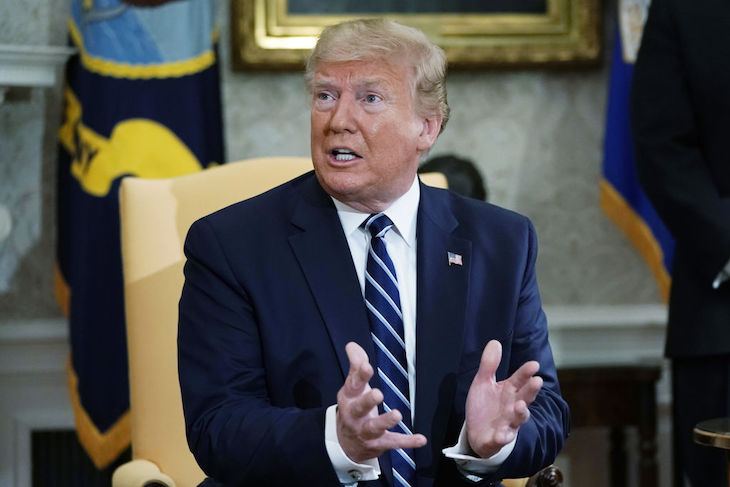If truth is the first casualty of war, the second casualty of war is credibility. Last week, much of the American media chose not to believe Mike Pompeo when he presented a Central Command video which, he said, showed an Iranian crew tinkering with limpet mines and an oil tanker.
‘Tankers Are Attacked in the Mideast, and US Says Video Shows Iran Was Involved,’ was the New York Times’ headline. An op-ed in the same issue pondered whether the administration’s ‘narrative’ of the tanker attacks was a Gulf of Tonkin-style fake.
Today, the Times is certain of its facts: ‘Trump Approves Strikes on Iran, but Then Abruptly Pulls Back.’ It has the ring of truth, which is always dangerous whether it is true or not. And we incline to believe it not so much because it reflects the hair-trigger nature of US-Iran tensions, or because the story is well-sourced — our Spectator USA DC editor, Curt Mills, heard the story on Tuesday night from three different sources — but because it seems to reflect one of the few commonly held ‘narratives’ in modern American life: the psychology of Donald Trump.

Get Britain's best politics newsletters
Register to get The Spectator's insight and opinion straight to your inbox. You can then read two free articles each week.
Already a subscriber? Log in







Comments
Join the debate for just $5 for 3 months
Be part of the conversation with other Spectator readers by getting your first three months for $5.
UNLOCK ACCESS Just $5 for 3 monthsAlready a subscriber? Log in